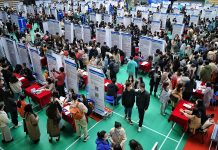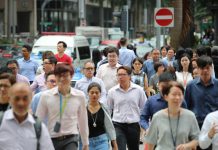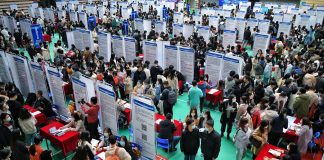Generation Z employees are entering the workforce amidst a disruption to our work model on a scale never seen before. It is natural that expectations of work for this generation, sometimes referred to as ‘zoomers’, have pivoted compared to previous generations.
One way Gen Z workers are paving the way towards changing expectations of work in Singapore is that they are less likely to choose full-time work amidst a rise in employer scrutiny according to the study by the ADP Research Institute, People at Work 2021: A Global Workforce View.
As a sign of change to the prevailing work culture in Singapore, only around half (54 percent) of Gen Z workers (aged 18-24) would choose to work in full-time traditional employment over part-time or contract roles, compared to a national average 76 percent.
The study also revealed the reasons why Gen Z would care for part-time or contract employment, a third (32 percent) cited concerns about the job security offered by traditional employment as compared to gig work or freelancing. One in four (24 percent) also reported a change in personal priorities and needs as a driving factor.
Gen Z workers are less likely to want a return to the office than older workers, signaling changes in where work may be completed. Just over a quarter (26 percent) of Gen Z workers want a complete return to the office, while in other age segments, 36 percent of ages 45-54 and 45 percent of ages over 55 years choose this option.
These factors have led to Gen Z breaking traditional expectations, including the 9-to-6 working model and the office as a centralised work location. Should HR leaders be concerned their newest employees are at risk of not fitting a traditional work model?
Maybe not, as the youngest Gen Z workers are digital natives and it is expected there is a lower barrier for them to shift to remote work. With employees in Singapore working an average of 9.4 unpaid hours per week, up from 7.3 hours pre-pandemic, and 31 percent working more than 10 hours of unpaid overtime weekly (19 percent up from pre-pandemic), there are indications that workers are adapting and putting in the time necessary to be secure and successful.
“There has been widespread disruption to the 9-to-6 working model. Workers are now routinely clocking up what amounts to more than a full working days’ worth of unpaid overtime every single week. Many may be going the extra mile due to concerns about their job security, to compensate when colleagues have lost their jobs,” noted Peter Hadley, President, Asia Pacific at ADP.





















